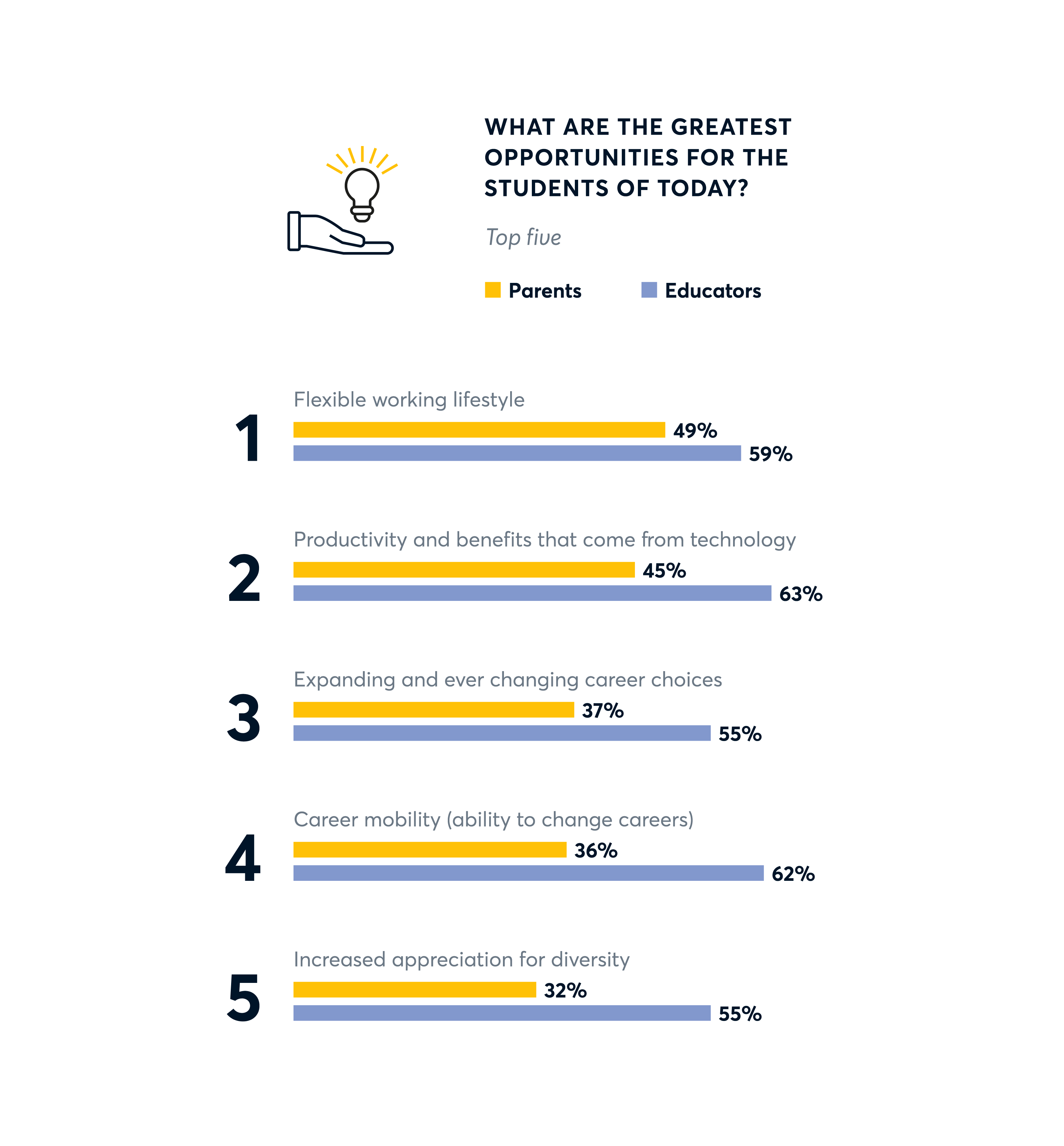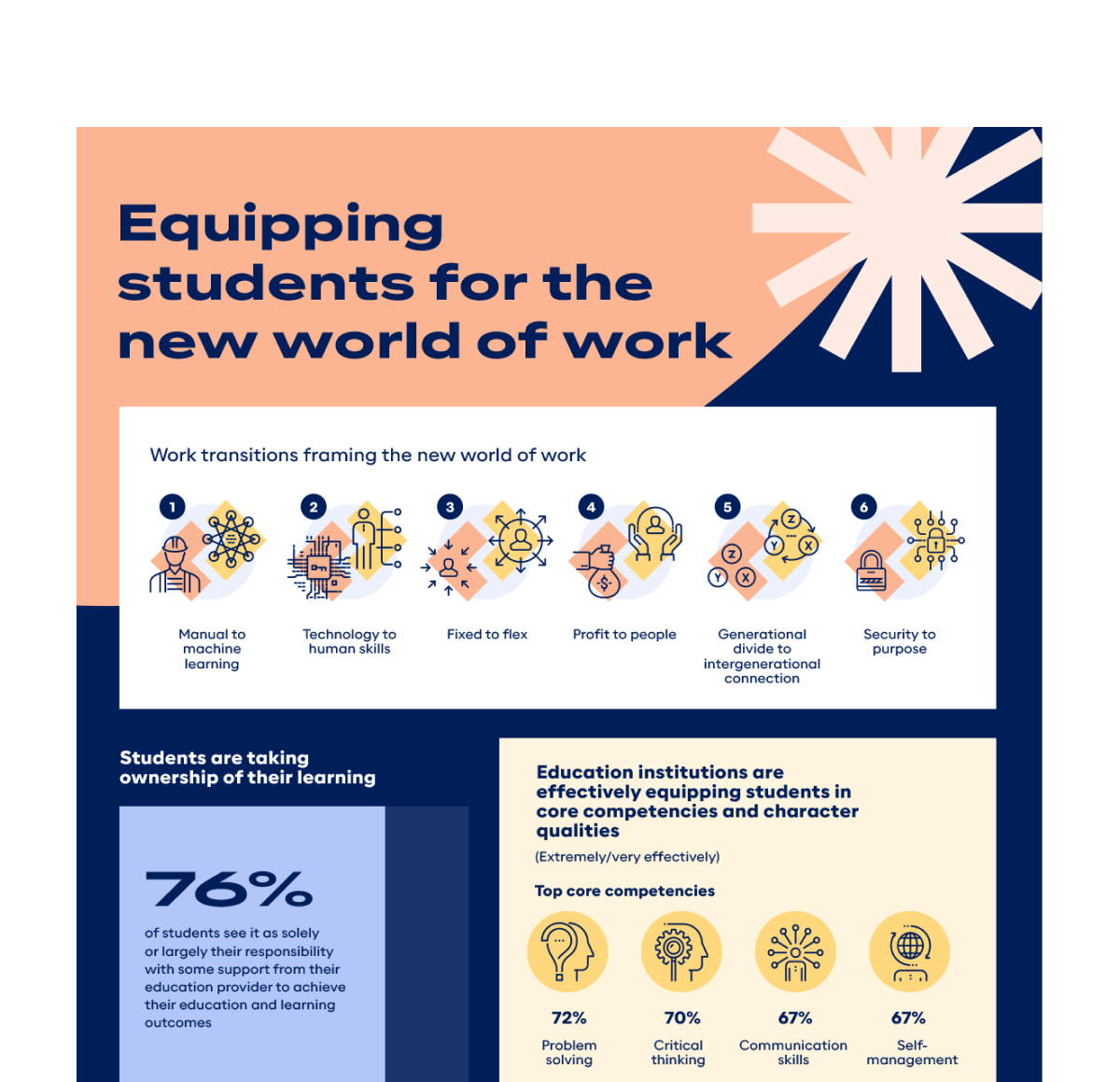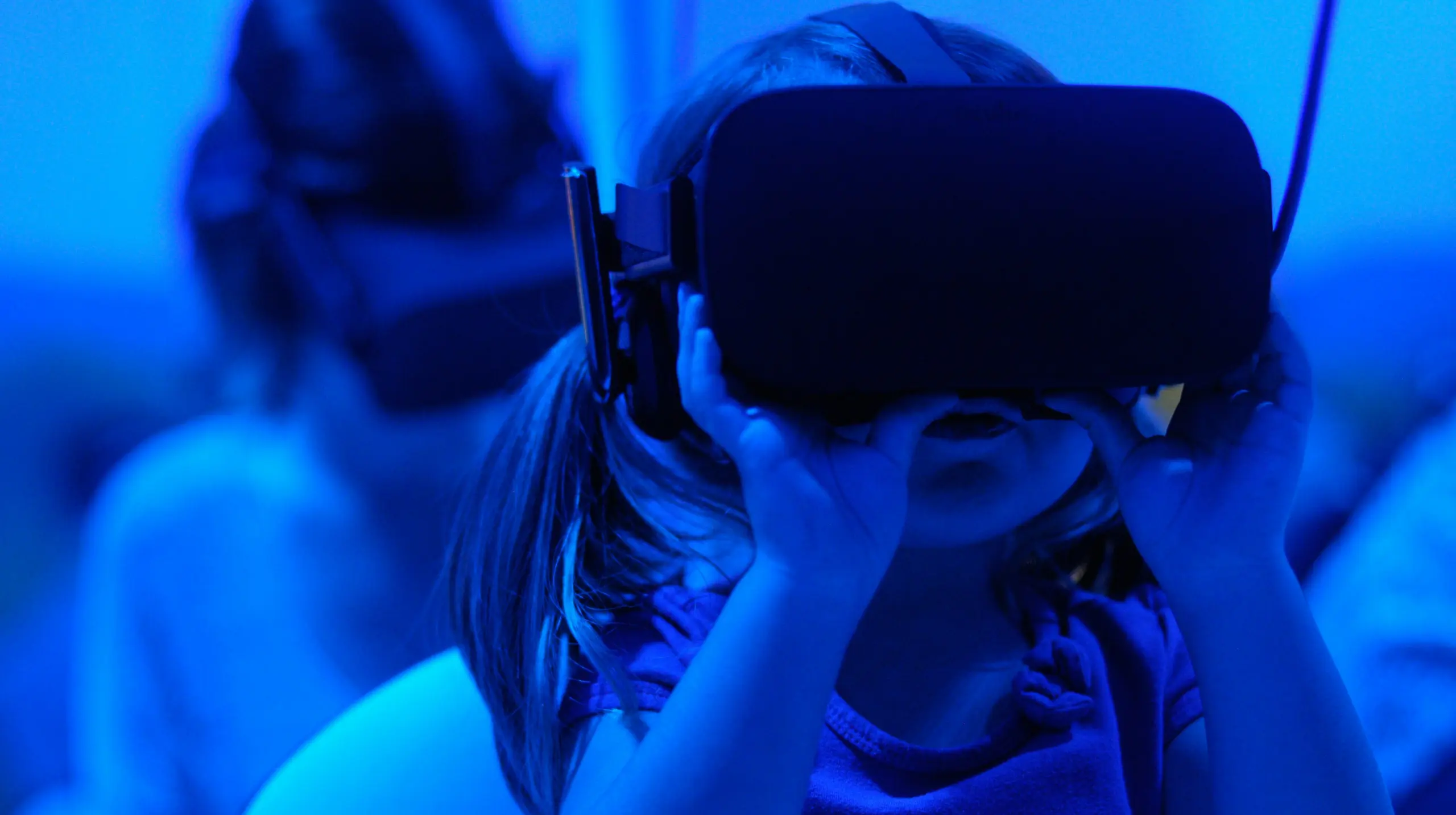Setting students up for success

The world around us is changing and the students of today have the challenge of preparing themselves for unknown careers in an unknown future. It is said that 65% of jobs that will exist in 2030 haven’t been invented yet. So as we look to the future what are the opportunities available for students today and how do we set students up for success in these changing times?
Parents and educators believe the greatest opportunities for students today are centred around the new world of work. Parents believe the greatest opportunities include a flexible working lifestyle (49%), productivity and benefits that come from technology (45%) as well as expanding and everchanging career choices (37%). Educators see the greatest opportunities as productivity and benefits that come from technology (63%) but also highlight career mobility (62%) as a significant opportunity for this generation.
Increased mental health pressures the greatest barrier to thriving
While this generation has many opportunities, there are also some challenges on the horizon. The topic of mental health is on the minds of parents and educators, with many highlighting it as a challenge for school communities and students personally. The extent of this challenge is so great, that parents (49%) and educators (74%) believe the greatest barrier for this generation to thrive is increased mental health pressures. Parents see the second greatest barrier as uncertainty of the future (38%). Educators, however, highlight a lack of resilience (68%) as the second greatest barrier. Both parents and educators agree on the third greatest barrier, which is a lack of inter-personal skills (35% parents, 58% educators).
What is more important for success?
To futureproof students in a time when career pathways are increasingly adaptable and fluid, there is often a focus on students’ core competencies and character qualities. Currently there is a disconnect, however, between what parents and educators believe is more important for success. Parents are more likely to believe that skills matter more for success than character qualities (57% cf. 43%). Educators, however, are more likely to believe that character qualities matter more than skills (58% cf. 42%).
When it comes to preparing the students of today for an unknown future, it is a combination of both skills and character qualities they will need to thrive. As robotics and automation replace some jobs, new ones will be created where both technical skills and character qualities will be required. This is important for equipping the students of today for lifelong learning, multiple careers and an adaptive future.
What do parents and educators see as the outcome of education?
Parents are evenly divided when it comes to educational outcomes. Half of parents (51%) believe a secure pathway to employment matters more, while 49% believe the ability to adapt to the changing environment matters more. Educators, however, are much more likely to believe the ability to adapt to the changing environment matters more (72%) than a secure pathway to employment (28%).
The importance of digital literacy and success
To set their child up for success parents are caught in the tension of embracing the integration of technology as a way of life, while wanting to provide healthy boundaries for their child around technology. Nine in ten parents (90%) and educators (88%), agree children need to be digitally literate to succeed. They are aware that digital literacy involves screen time, and as such, seven in ten parents (70%) and educators (69%) agree that children need to spend time on screens to succeed. The tension comes into play, however, in that more than nine in ten parents (91%) and educators (95%) believe children spend too much time on screens.
Skills of the future
In five years’ time, parents believe it will be most important (extremely/very) for students to be digitally literate in the areas of coding (53%), artificial intelligence (51%) and robotics (47%). Educators are consistent with this, however, instead of robotics they place a higher priority on video production, editing and animation (51%).
The rise of automation and technology integration is important to consider when preparing students for success. Technological integration, however, is only one aspect of our future. It is the combination of both engaging with AI and new technological developments alongside the character development and interpersonal skills that sets students up for success. Its not so much a focus on what to learn but on how to learn that allows students to adapt to the changing environment.










